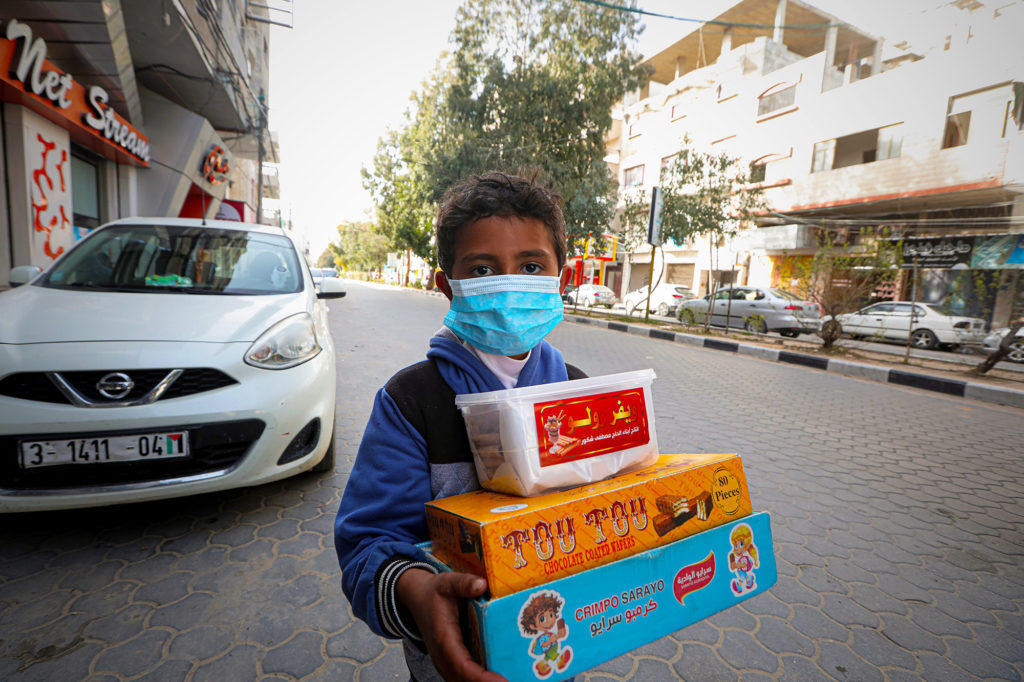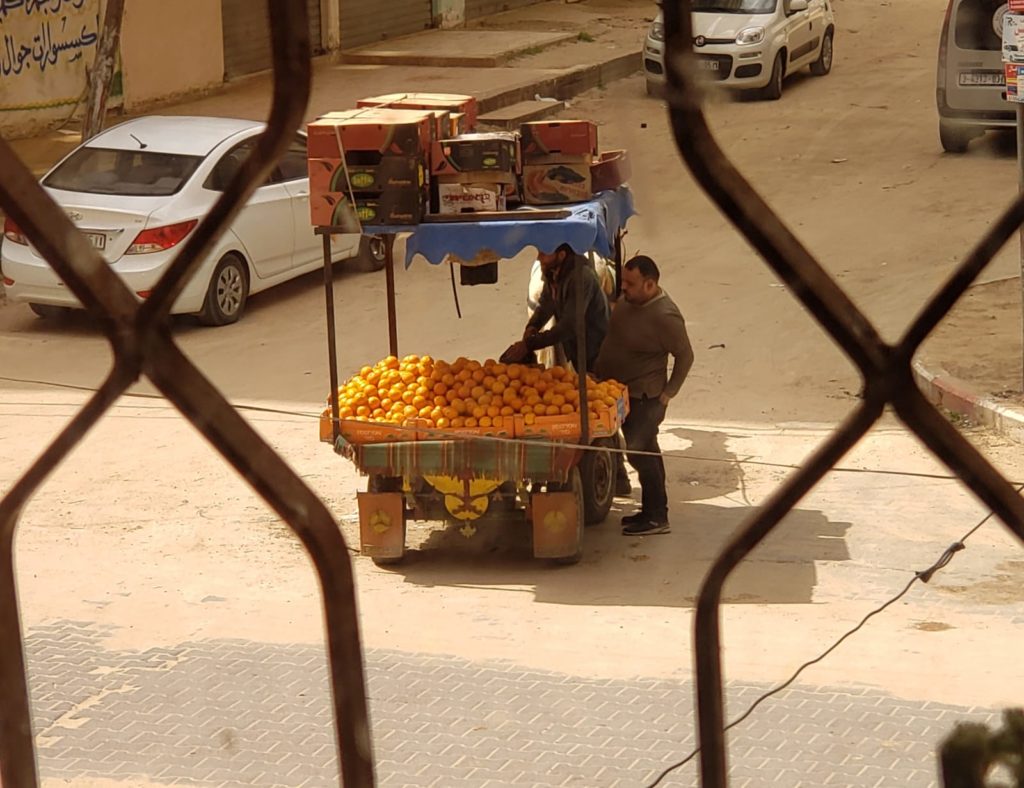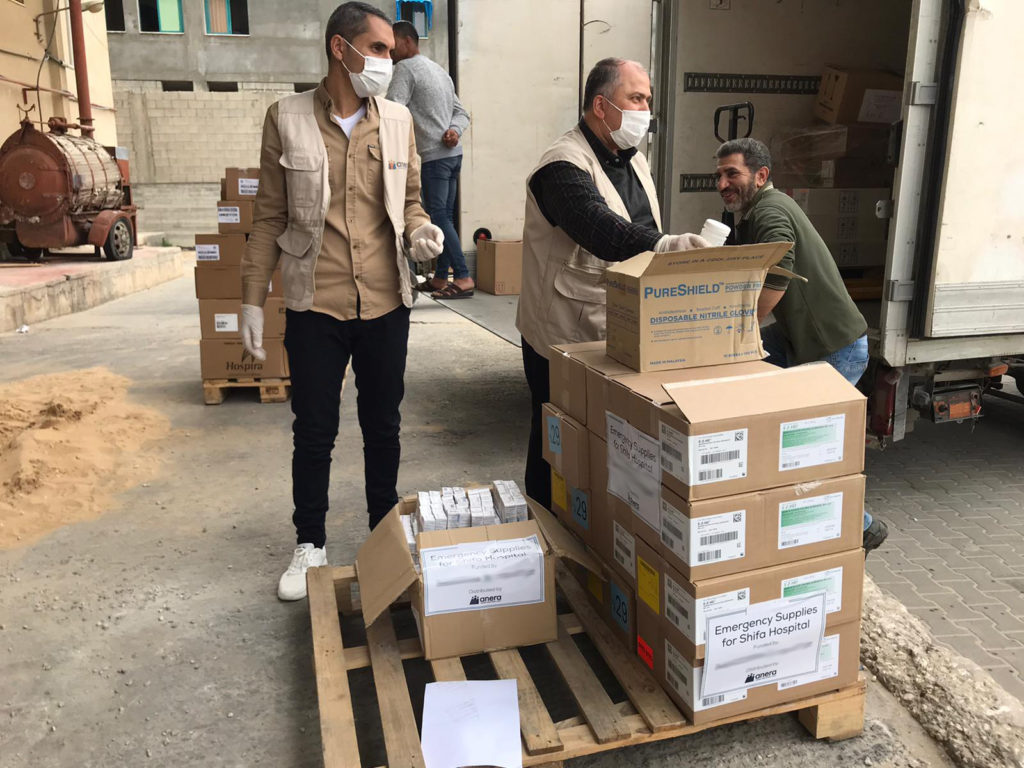Is Gaza Unlivable?
Posted in: Voices from the field
A UN report published in 2012 announced that Gaza would be unlivable by 2020. The predictions were about an alarming humanitarian crisis on a small strip of land. Here we are in 2020 and we’re grappling with a global pandemic!
It’s hard for the people of Gaza to fully grasp a silent unpredictable enemy like the COVID-19 virus. We are all accustomed to our danger coming in the form of loud explosions erupting unexpectedly around us. So, this stealthy new threat escapes many people’s notice.


Gaza has been sealed off from the rest of the world for the past 14 years. We are used to being in a sort of quarantine and living in a chronic state of crisis. We struggle daily to keep our economy and health care systems going, while also battling constant power cuts. We know how to cope and make the best of bad situations. But this pandemic is a whole new kind of scary.
For a while, as the coronavirus spread around the globe, we hoped that being cut off from the world might just protect us. Maybe we’d actually be grateful for the isolation for once! But the inevitable has happened. As of this writing, we have 12 cases of COVID-19 reported. It’s frightening to imagine how quickly the disease could spread in Gaza as one of the most densely populated places on earth with eight refugee camps. How will we ever handle a major global pandemic that the most advanced health care systems are struggling to cope with? We barely have enough medicines and medical supplies and equipment in the best of times.
Restaurants, cafes and wedding halls had been closed. Mosques, too, have suspended mass prayers. Schools and universities have called off classes until further notice. These measures are necessary to enforce self-quarantine and physical distancing.
Yet I still hear the fruit vendor with his megaphone coming by my window several times a day to sell his oranges. For him probably the most important thing is making a few dollars so he can take care of his family, not protecting himself from a virus that may seem remote. And I’m sure he is not alone. Construction workers, carpenters, blacksmiths, cafe workers and many others have lost, or are in immediate danger of losing, their meager daily wages. In a place where the unemployment rate is more that 40%, the struggle to survive is already a daily reality for most people.


In Gaza, we have always found comfort during our many emergencies through community support. We find strength in sticking together and being there for each other, shoulder-to-shoulder. Now, we’ll have to find new sources of comfort. Thanks to technology, the availability of apps and chat groups have allowed us to keep up our spirits. After Anera staff were advised to work from home remotely, we continue to stay in regular contact, sharing work updates and materials on how to handle life during a pandemic.
I have always found the strength in working for an organization that is doing something to help the people around me. Our medical team is delivering medicines and health care supplies to major hospitals and clinics. And many of our other programs are also helping people to weather this crisis. Anera has connected homes and community non-profits to clean water, built preschools and trained teachers, and set up greenhouses on individual families’ plots of land. Access to clean water is vital for good hygiene, and access to home-grown food is more valuable than ever now that produce markets have closed. With school out, Amal Arandas, a teacher at Nassairat Preschool, which Anera recently built, is reaching out to parents to provide resources online that show how to reuse household materials such as old toothbrushes, empty shampoo bottles and egg cartoons as tools for art and educational activities at home.


I recently spoke over the phone with one of our greenhouse recipients, Mohamed Zaneen in Beit Hanoon. He said, “I spend most of my time in the greenhouse. It’s my only source of comfort! I’m afraid that food prices will go up now. So, the fact that I am able to grow and pick my own food is amazing. I don’t have to go anywhere while I’m self-quarantined, because I can still feed my children.”
In this time of fear, we are seeing not only the urgency of medical preparedness but the importance of all of our programs that allow people to sustain themselves through prolonged disruptions. People here are well acquainted with moments of crisis. This time, the rest of the world is also confronted by the danger. Emerging resilient from this latest threat will require all of us to support each other, across boundaries.
OUR BLOG
Related
In Gaza, systematic bombardment of civilian housing and infrastructure has created a crisis of shelter that is endangering over a million.
The undersigned members of the Association of International Development Agencies (AIDA) urgently call upon the international community to intervene and halt settler attacks targeting Palestinian civilians and protect Palestinian communities near illegal settlements. The International NGO Community urges international actors…
